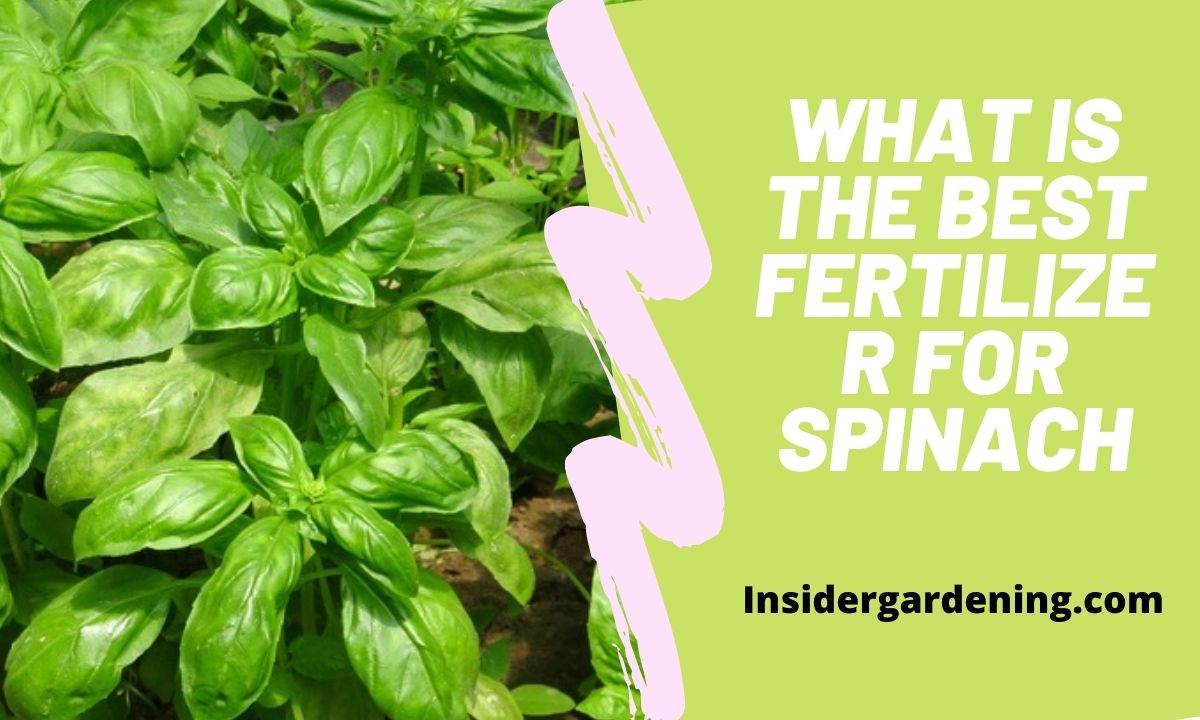Choosing the Best Fertilizer for Spinach: A Comprehensive Guide

Spinach, a nutrient-packed leafy green, is a staple in many home gardens due to its versatility and health benefits. To ensure a bountiful harvest of vibrant and nutritious spinach leaves, selecting the right fertilizer is crucial. With a variety of options available, finding the best fertilizer for your spinach plants can significantly impact their growth and yield.
In this guide, we’ll delve into the key considerations for choosing the ideal fertilizer to cultivate healthy and thriving spinach.
Understanding Spinach Nutrient Requirements
Before delving into fertilizer options, it’s essential to understand the specific nutrient requirements of spinach. Spinach is a leafy vegetable that thrives on a balanced diet of essential nutrients, including nitrogen (N), phosphorus (P), and potassium (K). Nitrogen supports leafy growth, phosphorus aids in root development, and potassium contributes to overall plant health and disease resistance.
Selecting the Right N-P-K Ratio
When choosing a fertilizer, pay close attention to the three-number N-P-K ratio listed on the packaging. This ratio indicates the relative amounts of nitrogen, phosphorus, and potassium present in the fertilizer. For spinach, a balanced fertilizer with a ratio of 10-10-10 or 14-14-14 is generally suitable. This ensures that the plant receives a well-rounded mix of nutrients to support both leafy growth and root development.
Organic vs. Synthetic Fertilizers
Both organic and synthetic fertilizers can effectively nourish spinach plants, but they differ in their composition and impact on the soil. Organic fertilizers, such as compost, manure, and fish emulsion, are derived from natural sources and contribute to soil health over time. They release nutrients slowly and improve soil structure. Synthetic fertilizers, on the other hand, deliver nutrients more quickly and can be tailored to specific nutrient needs. Choose the type of fertilizer that aligns with your gardening philosophy and soil health goals.
Micronutrients and Soil pH
In addition to the primary N-P-K nutrients, spinach also benefits from micronutrients like iron, manganese, and boron. These micronutrients are essential for healthy leaf development and overall plant function. Consider using a fertilizer that includes micronutrients or amending the soil with micronutrient-rich materials if deficiencies are observed. Additionally, spinach thrives in slightly acidic to neutral soil with a pH range of 6.0 to 7.0. Test your soil’s pH and adjust it if necessary to ensure optimal nutrient uptake.
Slow-Release Fertilizers for Sustained Nutrition
To provide spinach plants with a steady and sustained supply of nutrients, consider using slow-release fertilizers. These fertilizers gradually release nutrients into the soil over an extended period, reducing the risk of over-fertilization and nutrient imbalances. Slow-release fertilizers are particularly beneficial for crops like spinach that require consistent and even nutrient availability throughout their growth cycle.
Application Timing and Frequency
When applying fertilizer to spinach plants, timing and frequency are essential factors to consider. Start by incorporating a balanced fertilizer into the soil before planting or sowing seeds. As the plants grow, you can side-dress the soil with a nitrogen-rich fertilizer to support leafy growth. Avoid excessive fertilization, as it can lead to nutrient imbalances and negatively affect plant health. Follow the manufacturer’s recommendations for application rates and timings.
Monitoring and Adjusting
Successful spinach cultivation involves ongoing monitoring of plant health and growth. Observe the appearance of the leaves, as yellowing may indicate nitrogen deficiency, while stunted growth could signal phosphorus deficiency. Adjust your fertilizer application based on the specific needs of your spinach plants. Regularly testing the soil’s nutrient levels can provide valuable insights into nutrient availability and guide your fertilization practices.
Final Thoughts
Selecting the best fertilizer for your spinach plants requires a thoughtful approach that takes into account their nutrient requirements, soil conditions, and your gardening philosophy. Whether you opt for organic or synthetic fertilizers, prioritize a balanced N-P-K ratio, and consider the inclusion of micronutrients. Remember that slow-release fertilizers can provide sustained nutrition, and proper application timing and frequency are key to fostering healthy spinach growth. By tailoring your fertilizer choice to your spinach’s needs, you’ll be well on your way to cultivating a thriving and productive spinach harvest.



